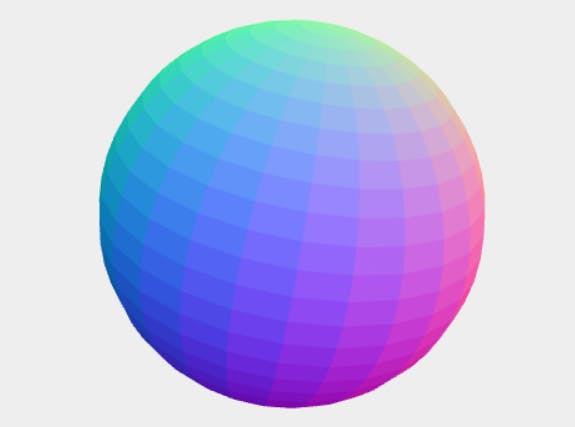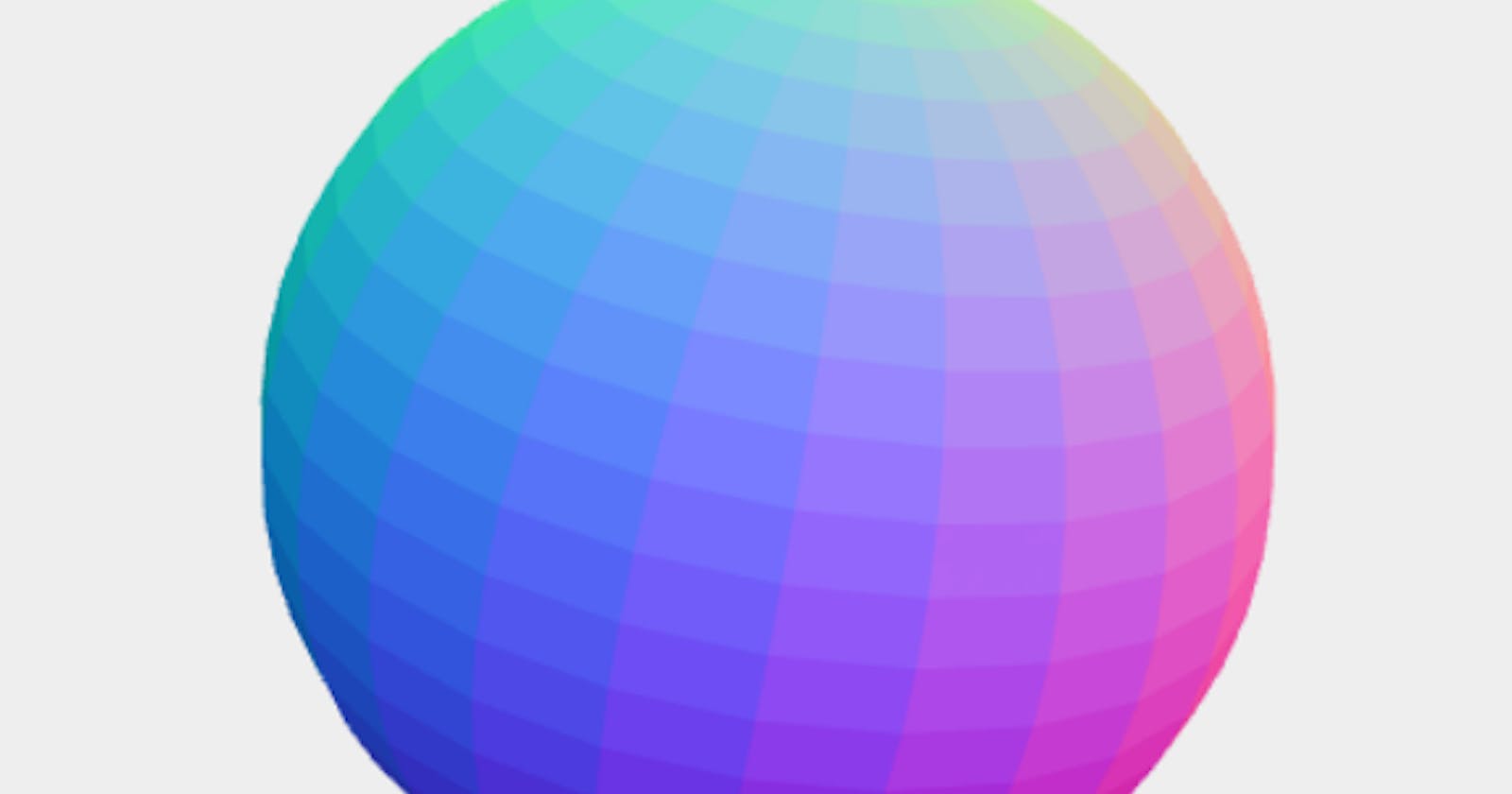Sphere Geometry
Some understanding about the Spherical Coordinate System will be helpful.😃 https://en.wikipedia.org/wiki/Spherical_coordinate_system Replace the previous Torus Geometry with this:
const geometry = new THREE.SphereGeometry(10, 25, 25);
const material = new THREE.MeshNormalMaterial({flatShading: true});
const sphere = new THREE.Mesh(geometry, material);
scene.add(sphere);
animate();
function animate() {
requestAnimationFrame(animate);
sphere.rotation.x += 0.01;
sphere.rotation.y += 0.01;
sphere.rotation.z += 0.01;
renderer.render(scene, camera);
}
Result: The Normal Sphere:

SphereGeometry(radius : Float, widthSegments : Integer, heightSegments : Integer, phiStart : Float, phiLength : Float, thetaStart : Float, thetaLength : Float)creates a Sphere.radiusdetermines the radius of the Sphere. Default: 1 -widthSegmentsandheightSegmentsdetermine the number of segments in width and height. Larger value will generate a smoother sphere.widthSegmentsminimum 3, Default: 32.heightSegmentsminimum 2, Default: 16.phiStartandphiLengthwill generate a part of sphere along the phi axis. These are angles and must be specified in radians. ExampleMath.PIor3 * Math.PI / 2.- Default:
phiStart = 0phiLength = Math.PI * 2. thetaStartandthetaLengthwill generate a part of sphere along the theta axis. These are also angles and are specified in radians.- Default:
thetaStart= 0thetaLength= Math.PI.
Using Minimum Values
THREE.SphereGeometry(10, 3, 2, 0, Math.PI * 2, 0, Math.PI)

Follow the Series
I hope You Enjoyed! 🤩😄
